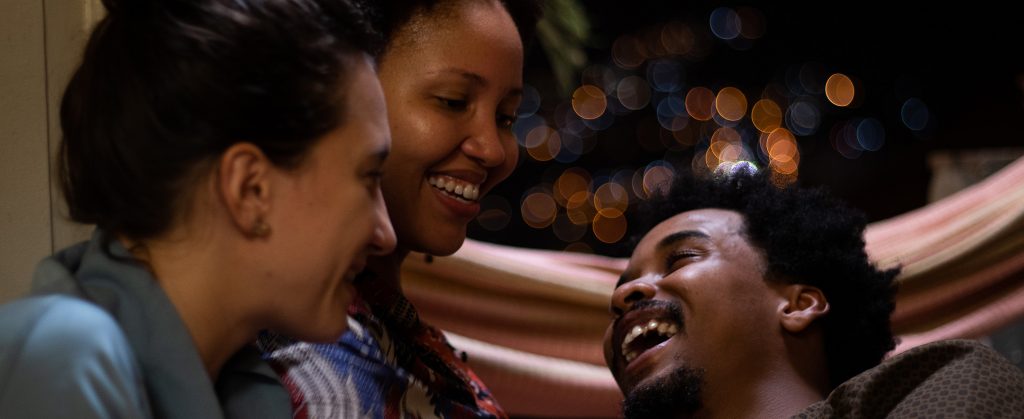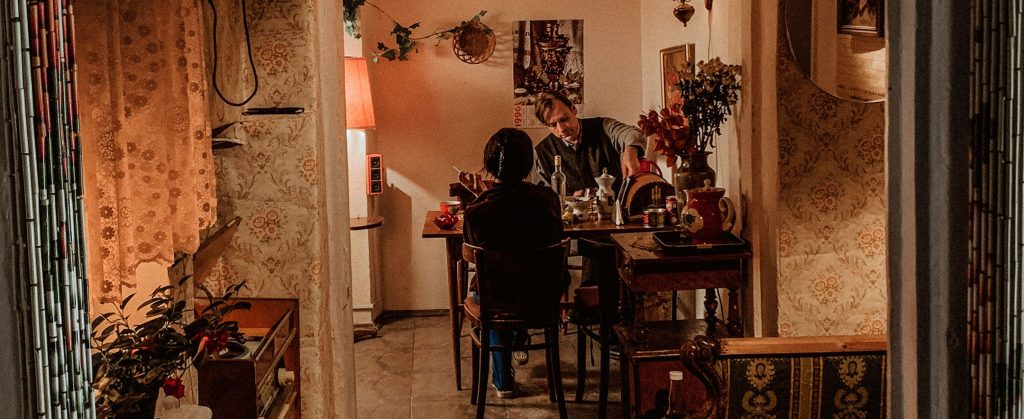Today during the Swedish Film Institute / Film i Väst press meeting at the Scandinavian terrace, in Cannes, Fund Manager Camilla Larsson and Artistic Director of Göteborg Film Festival, Jonas Holmberg, announced the first selection of post-production projects – three films, one respectively from Brazil, Ukraine and Kurdistan Regional Government, Iraq. At the same time Göteborg Film Fund 2021 opened submission for Innovative distribution support.
In the beginning of May Göteborg Film Festival initiated Göteborg Film Fund 2021 – a one-year project, supported by the Swedish Ministry of Foreign Affairs, as a part of the Swedish governments ”drive for” democracy. The fund targets four different regions: Brazil, Sudan, Ukraine and Kurdish Cinema in Iran, Iraq, Syria and Turkey. When submission for the first to support schemes – development and post-production – closed in mid-June, over 1000 applications were counted!
– This was more than four times than what we even dared to expect. Just the thought that over 600 development and 140 post-production applications arrived from Brazil is overwhelming and says something about the current situation, says Camilla Larsson, Fund Manager, Göteborg Film Fund.
– We are so proud of, and excited over, these first three selected projects, each one of them very specific for their region and in their expression, but also very universal in their stories. We start off with fiction, but next selection of post-production projects will definitely contain artistic documentaries as well!
The selected films, receiving SEK 350 000 each are: La Palisiada, by Philip Sotnychenko, Ukraine; Rule 34 (Regra 34), by Julia Murat, Brazil; The Rain Bride (Bûka Baranê), by Hussein Hassan. KRG-Iraq (more info on the films below).
Today, July 10, the third support scheme, Innovative distribution support, will open for submission, until August 10. The announcement of the selection for development support will take place in September, as will the second selection of post-production support projects.
Facts and figures
Number of applications:

Fiction, by Julia Murat, Brazil, produced by Esquina Producões Co-producers: Bubbels Projects, Still Moving Producers: Julia Murat, Tatiana Leite, Juliette Lepoutre
Simone, 28, is a young black attorney who has spent years offering live online sex performances to pay for law school. She has just passed the bar examination for public defender and her new routine consists in attending public defense preparatory classes, and taking Kung Fu lessons with Lucia (27), a white friend from law school. At class, Simone studies the Brazillian Penal System, and its wicked selectivity, locking up mainly poor black young men and privately she is gradually introduced into the world of BDSM.
Director’s biography: Julia Murat was born in Rio de Janeiro in November 1979. She has a long time experience working as an editor, assistant director, and camera assistant. Her first fiction film Found Memories (Histórias que só existem quando lembradas) premiered in Venice and was selected by San Sebastian, Toronto and Rotterdam. Her second film Pendular won the Fipresci award at Berlin Film Festival 2017 and was selected by several festivals around the world. Rule 34 was selected for the Berlin Coproduction Market, 2019, and Vision SudEst.
Director’s statement: ”Rule 34 is a film that endeavors to construct dialogues between different identities, without this leading to the annulment of identarian policies. It is a film filled with questions: how does one deal with slavocracy traditions in our society? Is it possible to talk about desire without reproducing the male chauvinistic traditions that came into play to build these desires? Is it possible to enjoy violence without reproducing an oppressive system? Is there a system of equal rights without the selectivity of the penal system? Is it possible to educate without punishment?”

Fiction, by Hussein Hassan, KRG-Iraq, produced by Mitos Film – Iraq Producer: Mehmet Aktas
2014 in the Kurdish city of Duhok in Northern Iraq. Reber, a former deminer, now directs a traditional folk dance group where his wife Lori is a performer. When the region receives imminent threats through the ISIS war, Reber feels obliged to leave his family and join the frontlines. The Rain Bride explores a fight not only held in the frontlines but also within the community and families; a woman’s fight for a selfdetermined life. Intertwining the past and the present through the use of traditional storytelling, music and dance, the film reflects both the repetitive history of war in Kurdistan and the growing resistance in society to participate in it in the present.
Director’s biography: Hussein Hassan is a well-known director, writer and actor, both in film and tv. In 2006 he shot his first feature film Narcissus Blossom which was screened at the Panorama, Berlinale and at the Toronto International Film Festival. Hassan has also directed Herman, which premiered at Pusan International Film Festival, and Reseba – The Dark Wind which opened the 4th Duhok International Film Festival and was awarded the Muhr Award at the Dubai International Film Festival and the Fipresci Award at the Dhaka International Film Festival. It was selected as the official Oscar Entry from Iraq for 2018. Hassan is also successful as an actor.
Director’s statement: “The Rain Bride” developed through real events within a family that my producer and co-writer Mehmet Aktaş got to know during the war. (…) The film discloses the never-ending conflicts in Kurdistan and the traumatic consequences of war that affects entire generations, as well as the social and cultural fabric of a society.”

Fiction, by Philip Sotnychenko, Ukraine, produced by Viatel; Contemporary Ukrainian Cinema Producers: Sashko Chubko, Valeria Sochyvets, Halyna Kryvorchuk
It is 1996 and five years since the declaration of Ukraine’s independence and five months before the declaration of the death penalty abolition. A murdered cop is found in a lake. The wrong guy is blamed. The police are in a hurry to close the case before the abolition of the death penalty. Oleksandr is an honored psychiatrist in his last year before retirement. He has to play a key role in the investigation of a complicated case and sign the life-or-death decision. Will he risk his friendship and his career to save a young man from the penalty he doesn’t deserve?
Director’s biography: Philip Sotnychenko was born in Kyiv in 1989. He is the co-founder of Contemporary Ukrainian Cinema, a collective of young independent filmmakers. His short films Son, Nail and Technical Break were all awarded at large film festivals – overall his seven shorts has made it into 350 selections and won over 50 awards. This is his feature debut.
Director’s statement: La Palisiada will be presented as ”declassified” archives of Ukrainian police, telling the story of the last death penalty in Ukraine. The plot itself is not based on any single real-life story, but is an amalgamation of different facts from Ukraine, Russia and Belarus. The protagonist is a 40-something forensic psychiatrist. In the faces of his patients we will see the portrait of this society after the collapse of the Soviet Uniion. 1990’s is the time when the post-Soviet countries were built, with all their problems. It was the time when the price for the wrong word or action easily could be death.
The pre-selection committees consisted of: Rafael Sampaio, Flavia Candida, Fernanda De Capua, Matheus Pestana for Brazil: Olena Yershova for Ukraine; Shamal Sabri for Kurdish Cinema; Camilla Larsson, Tobias Åkesson, Freddy Olsson, Göteborg Film Festival.
The final selection committee consisted of: Camilla Larsson, Fund Manager, Jonas Holmberg, Artistic director, Johan Blomqvist, Head of international programme, Tobias Åkesson, Head of Nordic programme, Göteborg Film Festival
Close